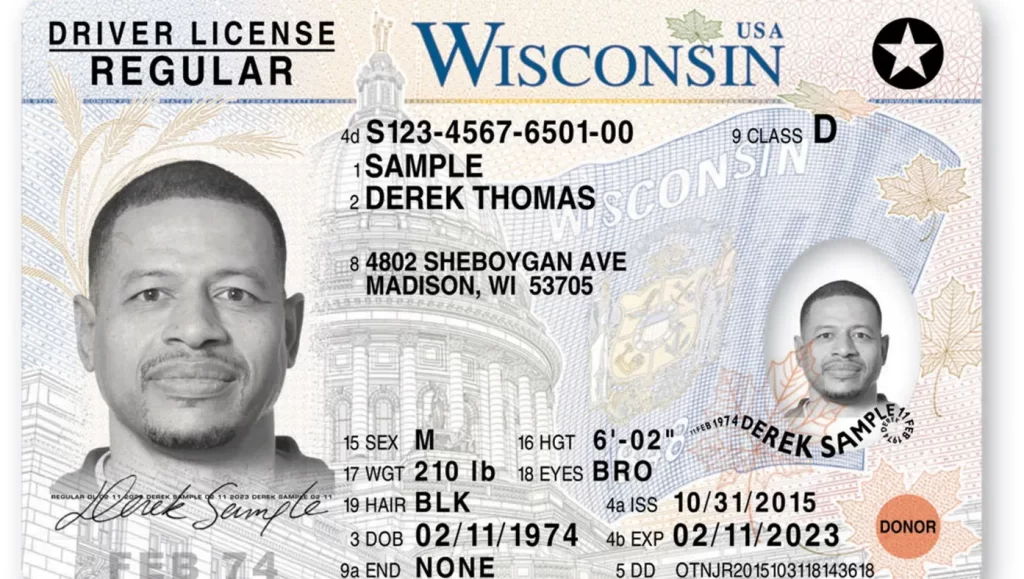Wisconsin
ID Scanning Laws
In Wisconsin, there are no specific laws regulating a business’s practice of scanning IDs or retaining information obtained from a scan. This means that businesses, including hotels, are generally allowed to scan IDs and retain the information obtained from the scan, subject to applicable privacy laws.
There are, however, certain instances where merchants are required to record information related to identity, such as the sale of controlled substances and scrap metal recycling. In these scenarios, ID scanning can improve the ease and accuracy of record keeping.




Wisconsin State Legislature
ID Scanning Resources
The Legal Framework
Wisconsin ID Scanning Laws and Regulations
While Wisconsin does not have specific laws governing the practice of scanning IDs, several bills and legislative actions have implications for businesses that scan IDs. Here are some of the key legislative actions:
Wisconsin Senate Bill 433: Prohibition of Municipal ID Scanning for Alcohol Purchases
Effective from April 10, 2014, this bill prohibits municipalities from providing any device capable of scanning a driver’s license or identification card issued by the Department of Transportation to alcohol beverages retail licensees. This means that municipalities cannot provide ID scanning devices to businesses, including hotels, that sell alcohol.
Wisconsin Assembly Bill 127: Scanning IDs during Alcohol Delivery
This bill, which has not yet been passed, would require an individual making a delivery of alcohol beverages to examine a customer’s identification and verify it visually and by using electronic scanning technology. A fiscal estimate for this bill was received on April 6, 2023.
Similarly, Wisconsin Senate Bill 130 has similar language and requirements for ID scanning upon the delivery of alcohol. The fiscal estimate for this bill was received on April 7, 2023.
Wisconsin Assembly Bill 368: Transfer of Firearms Ownership
This bill would require all transfers of ownership of firearms to be conducted by licensed dealers. Dealers would be required to transmit the transferee’s name, date of birth, gender, race, and Social Security number, and other identification necessary to permit an accurate firearms restrictions record search by the Department of Justice.
Wisconsin Assembly Bill 445: Identification Presentation and Monitoring for Certain Prescription Drugs
This bill provides immunity to a pharmacist from any civil or criminal liability and from discipline for any act taken in reliance on an identification card that the pharmacist reasonably believed was authentic and displayed the name of the person to whom the drug was being delivered, provided the sale was made in good faith.
Implications for Hotels in Wisconsin
For hotels in Wisconsin, these laws and regulations have several implications. First, hotels are generally allowed to scan IDs and retain the information obtained from the scan, subject to applicable privacy laws. This can be beneficial for hotels in verifying the identity and age of guests, particularly when providing services such as alcohol sales or controlled substances.
However, hotels must also be aware of the restrictions imposed by Wisconsin Senate Bill 433, which prohibits municipalities from providing ID scanning devices to businesses that sell alcohol. This means that hotels that sell alcohol must procure their own ID scanning devices.
Furthermore, if Wisconsin Assembly Bill 127 is passed, hotels that offer alcohol delivery services will be required to examine a customer’s identification and verify it visually and by using electronic scanning technology.
Please note that this information is intended to provide a general overview and does not constitute legal advice. Always consult with a legal professional for advice specific to your situation
Wisconsin Anti-Trafficking Network
Our Fight Against Human Trafficking



Knowledge Base
Frequently Asked Questions
Yes, hotels in Wisconsin can scan IDs and retain the information obtained from the scan, subject to applicable privacy laws.
Yes, Wisconsin Senate Bill 433 prohibits municipalities from providing ID scanning devices to businesses that sell alcohol. This means that hotels that sell alcohol must procure their own ID scanning devices.
If Wisconsin Assembly Bill 127 is passed, hotels that offer alcohol delivery services will be required to examine a customer's identification and verify it visually and by using electronic scanning technology.
Yes, Wisconsin Assembly Bill 368, if passed, would require all transfers of ownership of firearms to be conducted by licensed dealers, who would be required to transmit the transferee's identification information to the Department of Justice.
Under Wisconsin Assembly Bill 445, pharmacists are immune from any civil or criminal liability and from discipline for any act taken in reliance on an identification card that they reasonably believed was authentic, provided the sale was made in good faith.
The penalties for non-compliance with Wisconsin's ID scanning laws can vary depending on the specific law or regulation violated. Penalties can range from fines to loss of licensure for businesses.
